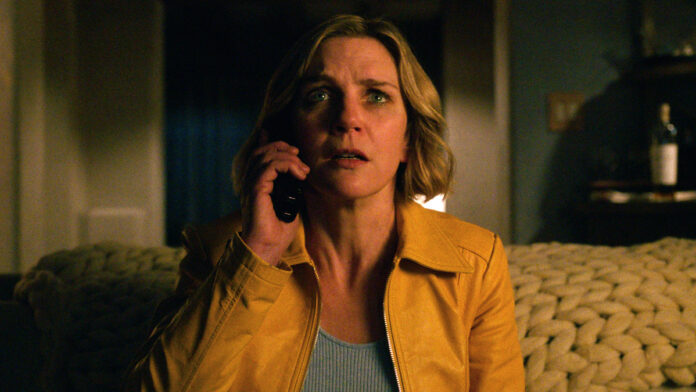When Apple TV’s Pluribus was first announced, all we knew was that it was a science fiction series from Vince Gilligan, and that it would star Rhea Seehorn, who had just finished giving one of TV’s most captivating performances on Better Call Saul. Everything about that equation was exciting, especially because before changing television on a fundamental level with Breaking Bad and Better Call Saul, Gilligan was a key writer on The X-Files during some of its best years. The potential for what he might bring back to the genre, after spending so long in the world of Albuquerque drug dealers and crooked lawyers, was reason enough to tune in.
It turns out, though, Pluribus has far less connection with The X-Files than it does with The Twilight Zone’s particular brand of storytelling — ordinary people caught up in an extraordinary situation. There is an investigatory element, especially early on, when the questions feel overwhelming. Yet that’s really not the thrust of the series, at least based on the first seven episodes provided to critics. Instead, it’s a show about the individual, as well as society, and how those concepts might exist in direct opposition to each other.
When Pluribus begins, the scientific world is on the verge of a major discovery — but most people have no idea, just living their lives as if there’s not a giant countdown clock looming above them. This includes Carol (Rhea Seehorn), a frustrated writer whose speculative historical romances are best-sellers, but not exactly creatively fulfilling. (“Mindless crap,” she calls it.) Still, as her partner Helen (Miriam Shor) reminds her, it pays the bills for their otherwise content existence.
Related Video
When everything changes, though, it changes fast. Soon, Carol finds herself alone and scared — unsure what’s happened to the world, and if it can even be fixed. Especially since there are some people who might argue that the world doesn’t need fixing.
The list of things that can be said about Pluribus in this review is much shorter than the list of things that cannot be said, due to Apple TV’s desire to keep much of the plot under wraps. While these sorts of embargo restrictions are never fun for a critic, it does speak to how much of the show’s power comes not from its twists, but the way the writers approach those twists. There are no shortage of elements here that might feel familiar on the surface, but the creative team here is just as familiar with the tropes as we are. The glee they take in subverting them is just one element of what’s so fascinating here.
It’s very close to the storytelling style we saw evolve during the Breaking Bad-verse, executed on a global scale. No easy answers are provided, making the pleasure of each revelation all the more satisfying, all executed with top-tier unconventional cinematography and editing that speaks to a fresh narrative voice. Such care has gone into this show’s making that every detail on screen is worth savoring.
It’s also worth noting that for as much time as characters might spend on their own, the writing never lapses into lazy quirks like having the person talk to themselves, narrating their actions. Instead, the show puts its faith in the audience to watch carefully. Breaking Bad composer Dave Porter handles the score here, creating a totally different sound for the show’s music that’s largely choral-based — a choice, considering the premise, that’s more than apt. Yet it’s also conscious of how powerful silence can be.
Gilligan, Seehorn told Consequence back in 2022, wrote the role of Carol specifically for her, and it truly is an incredible showcase for her talents. She’s not in every scene, but the weight of the show largely rests on Seehorn’s shoulders. Fortunately, Carol is so well-drawn as a character, both in the writing and the performance, that she offers steady support for the action. She’s far from perfect, with flaws that perhaps make the situation worse as opposed to better, yet that draws out her humanity all the more. Not the hero we need, but the only one we’ve got.
While the stakes are quite high, there’s still a sense of real fun to be had, whether it be in Carol’s reactions or some of the wilder cameos that occur. However, speaking of flaws, Pluribus’s biggest one might be found in how close it holds its cards to its chest: Key information gets doled out at a pace that could frustrate viewers more eager for answers than understanding. There are no shortage of clues, of course, though how many of them are actually relevant isn’t explicitly clear. As one example, some of the numbers being thrown around do have Biblical overtones, though the degree to which that’s an actual hint as to what’s going on is more than murky at this time.
When you dig a little deeper into Pluribus, though, it does reveal that it may have a little something to do with that recent period of time we all spent sheltering in place, every cough heard in public a potential harbinger of doom. There’s a lot being explored here about community, and the kind of value we put on acceptance as opposed to independence. Not just because of the isolation some characters experience, but because of what that isolation draws out of them.
This might be the best pandemic-related art we’ve gotten yet, because it comes at those themes from the most unexpected of angles, prying open the lingering trauma from those years to explore the deeper ways that time hurt us all. The title of the show, a Latin word drawn from the American motto E pluribus unum, emphasizes the “many” out of the translation “Out of many, one.” Seehorn might be the star of the show, but it really is a series about all of us.
The first two episodes of Pluribus are streaming now on Apple TV. New episodes premiere on Fridays.



